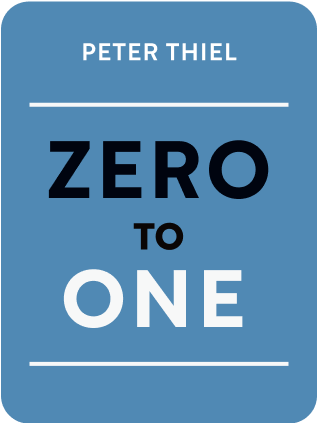

This article is an excerpt from the Shortform summary of "Zero To One" by Peter Thiel. Shortform has the world's best summaries of books you should be reading.
Like this article? Sign up for a free trial here .
How will technology progress over time? Will technological progress ever stop? Is there a maximum threshold that it can’t transcend?
In his book Zero to One, Peter Thiel charts the future for the advancement of technology. He contrasts four perspectives on the way technology will advance in the future: the cyclical perspective, the doomsday perspective, the convergence perspective, and the acceleration perspective.
Here are four perspectives on the advancement of technology.
The Advancement of Technology
Thiel contrasts four general views of the advancement of technology, which he attributes to Oxford processor Nick Bostrom:
- The cyclical perspective: Technology will progress to some maximum threshold and then crash. After the crash, people will gradually rebuild and technology will advance again, eventually achieving about the same maximum level before it crashes again. The cycle will repeat itself indefinitely, with human technology oscillating between minimum and maximum values. Thiel acknowledges that many ancient civilizations held this perspective. But, in the modern world, he cannot conceive of any type of disaster that could realistically send all of humanity back to the Stone Age without bringing about human extinction.
- The doomsday perspective: Technology and human civilization will progress up to some maximum point and then crash, resulting in the annihilation of humankind. Thiel acknowledges that this is a possibility.
- The convergence perspective: Technology will progress up to a certain point and then remain relatively static. Soon the “developing nations” will catch up to the West in terms of their technological development. Technology and society around the world will become increasingly homogenous. Thiel sees this as the prevailing view in the modern world, but he argues that it isn’t actually possible due to the scarcity of resources.
- The acceleration perspective: Technological progress will continue to accelerate, making the future different and better in ways that are currently beyond our ability to imagine. Some people believe that this acceleration of technological progress is inevitable. Thiel contends that this is the future we need to pursue, but it won’t happen on its own. Instead, we need to actively pursue technological development and search for new breakthroughs that can unlock a better future. Because if we don’t make new breakthroughs that create new resources, competition for existing resources will lead to conflict and ultimately extinction. This is why Thiel believes it’s so important to create new technology.

———End of Preview———
Like what you just read? Read the rest of the world's best summary of Peter Thiel's "Zero To One" at Shortform .
Here's what you'll find in our full Zero To One summary :
- Why some companies genuinely move the world forward when most don't
- How to build a company that becomes a monopoly (and why monopolies aren't bad)
- Silicon Valley secrets to selling products and building rockstar teams






